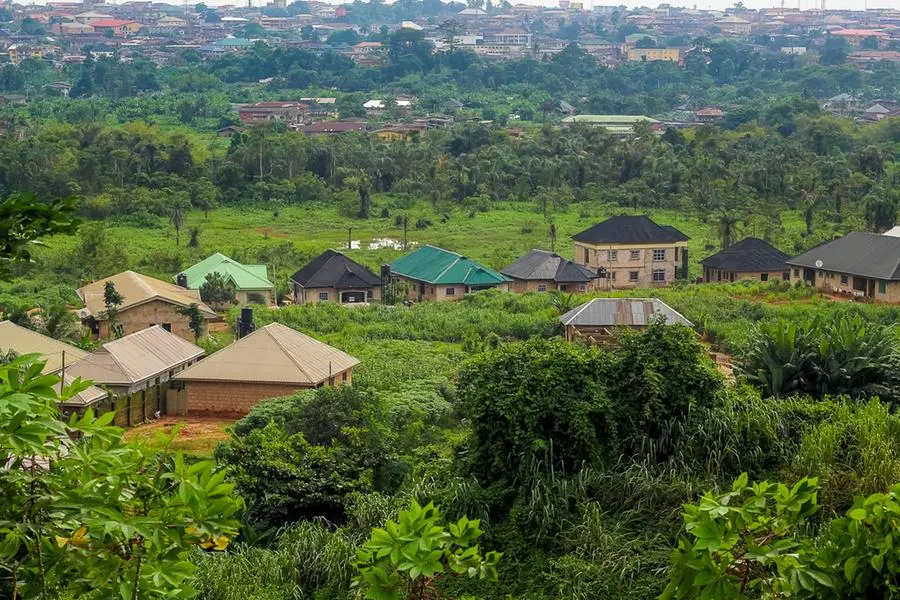PHOTO
Nearly 55 million people in West and Central Africa will face severe food insecurity in the upcoming lean season (June-August 2024), according to a new report by the Permanent Inter-State Committee for Drought Control in the Sahel (CILSS). This alarming div represents a four-fold increase over the past five years and a significant jump of four million from forecasts made just five months ago.
The situation is particularly critical in conflict-ridden areas like northern Mali, where an estimated 2,600 people are at risk of experiencing catastrophic hunger (IPC/CH Phase 5). However, the report highlights a worrying shift – economic factors are now playing a major role in driving food insecurity across the region, surpassing even the impact of ongoing conflicts.
Moreover, CILSS indicated that soaring food prices, currency devaluation, stagnant agricultural production, and trade barriers are creating a perfect storm of hunger. Staple grains across the region have seen price hikes ranging from 10% to over 100% compared to the five-year average. This surge is fueled by a combination of factors, including inflation, rising fuel and transportation costs, trade restrictions imposed by the Economic Community of West African States (ECOWAS), and limitations on the movement of agricultural products.
Ghana (23%), Nigeria (30%), Sierra Leone (54%), Liberia (10%), and The Gambia (16%) are experiencing significant currency depreciation, further exacerbating food price volatility. West and Central Africa’s heavy reliance on food imports to meet its population’s needs compounds the problem. With import bills rising due to currency devaluation and inflation, countries grappling with fiscal constraints are finding it increasingly difficult to afford essential food imports.
The 2023-2024 agricultural season saw a cereal production deficit of 12 million tons, leading to a 2% decline in per capita cereal availability compared to the previous year.
“We need immediate action,” said Margot Vandervelden, WFP’s Acting Regional Director for West Africa. “All stakeholders must work together to implement innovative programs that prevent the situation from escalating and ensure no one is left behind. Investment in long-term solutions and building resilience are crucial for West Africa’s future.”
The report indicated that malnutrition rates in West and Central Africa are alarmingly high. An estimated 16.7 million children under five are acutely malnourished, and over two-thirds of households cannot afford healthy diets. Additionally, 80% of children aged 6-23 months are not consuming the minimum variety of foods required for healthy growth and development.
Moreover, CILSS said that high food prices, limited access to healthcare, and inadequate diets are the primary drivers of acute malnutrition in children under five, adolescents, and pregnant women. In some areas of northern Nigeria, the prevalence of acute malnutrition among women aged 15-49 years is as high as 31%.
“Ensuring good nutrition, a healthy environment, quality education, and safe living conditions for every girl and boy in the region is paramount for their future potential,” said UNICEF Regional Director Gilles Fagninou. “Early childhood nutrition is the foundation for a healthy, productive workforce. We need a holistic approach that strengthens education, healthcare, water and sanitation, food security, and social protection systems to make a lasting impact on children’s lives.”
To address this growing crisis, FAO, UNICEF, and WFP are urging national governments, international organizations, civil society, and the private sector to collaborate on sustainable solutions. These solutions should focus on strengthening food security, boosting agricultural productivity, and mitigating the impact of economic volatility. The ultimate goal is to ensure the fundamental human right to food is upheld for all.
The agencies point to successful social protection programs in Senegal, Mali, Mauritania, and Niger, supported by UNICEF and WFP, as examples of effective interventions. Similar programs are being scaled up in Chad and Burkina Faso. Additionally, FAO, IFAD, and WFP are working together across the Sahel region to implement resilience-building programs that aim to increase food production, availability, and access to nutritious foods.
“To tackle this unprecedented food and nutrition crisis, we need policies that promote the diversification of plant, animal, and aquatic food production,” said Dr. Robert Guei, FAO Sub-Regional Coordinator for West Africa and the Sahel. “This includes providing agricultural inputs and access to productive resources to stimulate production and improve food availability. By supporting local food processing and protecting biodiversity, we can not only ensure access to affordable, healthy diets year-round but also mitigate the effects of climate change and protect livelihoods.”
© 2024 Daily News Egypt. Provided by SyndiGate Media Inc. (Syndigate.info).





















